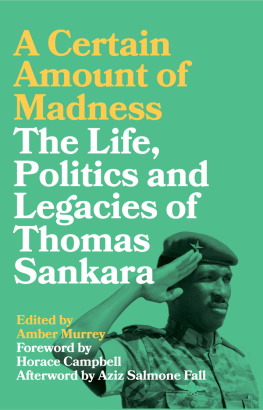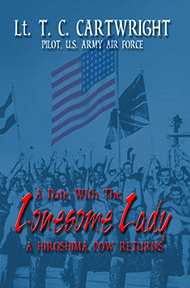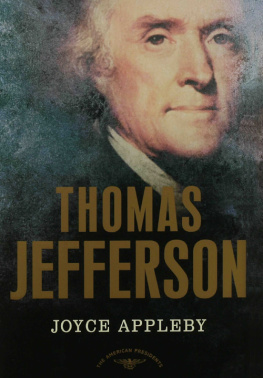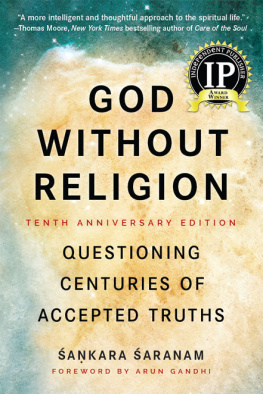Contents
Guide
A Certain Amount of Madness
Black Critique
Series editor: Anthony Bogues
We live in a troubled world. The rise of authoritarianism marks the dominant current political order. The end of colonial empires did not inaugurate a more humane world; rather, the old order reasserted itself.
In opposition, throughout the twentieth century and until today, anti-racist, radical decolonization struggles attempted to create new forms of thought. Figures from Ida B. Wells to W.E.B. Du Bois and Steve Biko, from Claudia Jones to Walter Rodney and Amlcar Cabral produced work which drew from the historical experiences of Africa and the African diaspora. They drew inspiration from the Haitian revolution, radical black abolitionist thought and practice, and other currents that marked the contours of a black radical intellectual and political tradition.
The Black Critique series operates squarely within this tradition of ideas and political struggles. It includes books which foreground this rich and complex history. At a time when there is a deep desire for change, black radicalism is one of the most underexplored traditions that can drive emancipatory change today. This series highlights these critical ideas from anywhere in the black world, creating a new history of radical thought for our times.
Also available:
Red International and Black Caribbean:
Communists in New York City, Mexico and the West Indies, 19191939
Margaret Stevens
A Certain Amount
of Madness
The Life, Politics and Legacies of Thomas Sankara
Edited by Amber Murrey
Foreword by Horace Campbell
Afterword by Aziz Salmone Fall

First published 2018 by Pluto Press
345 Archway Road, London N6 5AA
www.plutobooks.com
Copyright Amber Murrey 2018
The right of the individual contributors to be identified as
the authors of this work has been asserted by them in accordance with the
Copyright, Designs and Patents Act 1988.
British Library Cataloguing in Publication Data
A catalogue record for this book is available from the British Library
ISBN 978 0 7453 3758 6 Hardback
ISBN 978 0 7453 3757 9 Paperback
ISBN 978 1 7868 0224 8 PDF eBook
ISBN 978 1 7868 0226 2 Kindle eBook
ISBN 978 1 7868 0225 5 EPUB eBook
This book is printed on paper suitable for recycling and made from fully
managed and sustained forest sources. Logging, pulping and manufacturing
processes are expected to conform to the environmental standards of the country of origin.
Typeset by Swales & Willis
Simultaneously printed in the United Kingdom and United States of America
Half of all author proceeds for this book are donated to the June Givanni Pan-African Cinema Archive (www.junegivannifilmarchive.com). This is the largest archive of Pan-African filmmaking in Europe, operating to promote Pan-African art and philosophy to a wide audience, supporting Black artists in a colonial matrix that otherwise marginalizes their perspectives and cultivating an appreciation for Black life and art all causes that were foundational to Sankaras radical Pan-African vision.
For Ndewa Jean (19481990)
and all the others who wept
on 15 October 1987
Contents
Foreword
The Life and Legacy of Thomas Sankara
Horace G. Campbell
Thomas Sankara was born in Burkina Faso in 1949, the same year that the Chinese Revolution succeeded in laying the foundations for a transition to socialism. This revolution had succeeded after years of war, sacrifice and ideological struggle. Sankara was killed in 1987, the year of the decisive military change to defeat apartheid militarism in Africa. In the 37 years while Sankara traversed the earth, he was shaped by the political, social and ideological struggles in the anti-imperialist world. Sankara helped to assert the claim of African peoples to be a part of those defining the future of humanity. In his adult years, Sankara served as a soldier in the armed forces of Burkina Faso. This was a branch of the imperial military chain to control the labour power of the producing classes in Africa. He made a decisive break with this tradition.
Burkina Faso was previously called Upper Volta, one of the regions of French colonial plunder and exploitation in Africa. Sankara had been groomed to serve these interests but he wanted to be a decent human being in a society of upright human beings. Hence in the period of his short leadership of Burkina Faso, 1983-1987, he changed the name and orientation of the society to signal a Pan-African assertion of dignity and self-confidence. These two aspects of self-determination have now been inscribed within the project for the unification and emancipation of a socialist Africa. Sankaras life and work as a soldier left many lessons for the African revolutionaries of today, whose task it is to speed the break from imperial domination. The 23 chapters of this book on Sankara remind the younger generation of what a life of dignity can do for peoples everywhere.
BIRTH IN THE SHADOW OF REVOLUTIONARY CHANGES
Thomas Sankara was born in a territory that had been exploited by France in its bid to represent itself as a major force in world politics. Both Britain and France had been diminished by the Second Imperialist war and wars of national liberation from China and Vietnam to Malaysia and Egypt had weakened both colonial powers. The United States had emerged out of World War II as the dominant imperial force and had created the North Atlantic Treaty Organization to defend global capital. France and Britain had mobilised colonial troops to maintain its place at the international table of Global Capital. Colonial armies were deployed in Vietnam and the marginalized elements of colonial societies were recruited as foot soldiers for the dying colonial enterprise. Hence in places such as the Central African Republic and Uganda, soldiers were recruited to fight to save French and British capitalism. Jean Bedel Bokasa of the Central African Republic and Idi Amin of Uganda were two archetype colonial soldiers who fought against freedom fighters in Indo China and in Kenya. It was this tradition of fighting against the forces of self-determination that was drilled into soldiers all across Africa after World War II. Those soldiers who supported the independence struggles, such as Dedan Kimathi of Kenya, had lent their military skills and training to the task of freeing Africa.
By the time Thomas Sankara was ten years old, the Cuban Revolution had sent a message that size was not a barrier in the fight for freedom. The emergence of the military and political ideas of Fidel Castro and Che Guevara had become a new source of inspiration for youths all across the anti-imperialist world. It was this world into which Thomas Sankara grew. Upper Volta, as his home society was called, was a reservoir of workers and soldiers from the French imperial system. The super exploitation of the working poor and farmers in the society was amplified by a system of migration where the poor of worked as cheap, bonded labor in the farms of Ghana and Ivory Coast. Hence the class character of Upper Volta was shaped by the dominance of French capital, with French commercial and trading firms in the interstices of the system. French domination was maintained through the coercive organs of the state - police, military, courts, prison and tsetse fly control. At the ideological level, the French system depended on the reinforcement of ideas of African inferiority.










